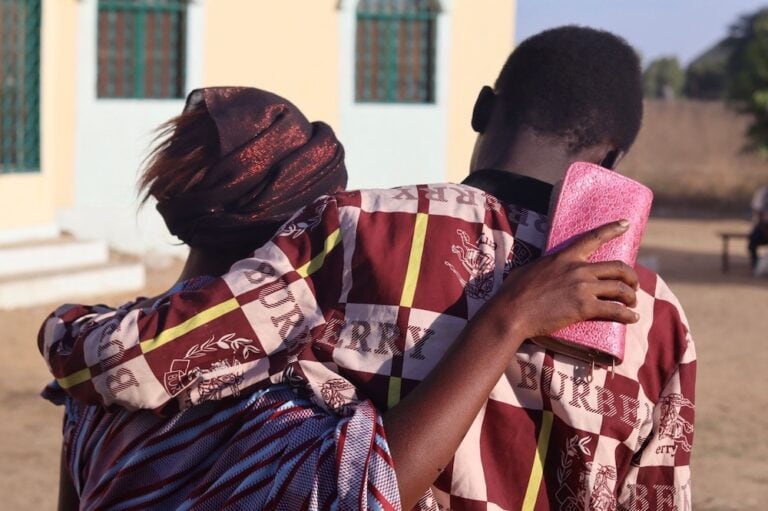Chadian journalist Jean-Claude Nekim has been convicted of "defamation," and given a suspended sentence of one year in prison for publishing a petition. He has also been fined with one million CFA Francs (1,500 Euros).
UPDATE: Judicial intimidation of editor and newspaper in Chad (CPJ, 5 October 2012)
(RSF/IFEX) – 18 September, 2012 – Reporters Without Borders is shocked by a verdict put forth by the Chadian justice system on 18 September 2012.
Journalist Jean-Claude Nekim was convicted of “defamation,” and given a suspended sentence of one year in prison. He has also been fined with one million CFA Francs (1,500 Euros). In addition, N’Djaména bi-hebdo – the opposition newspaper of which Nekim is editor-in-chief – has been suspended for three months.
In the same case, the president of Chad’s Association of Unions (UST), Michael Barka, the vice-president Younous Mahadjir, and the secretary general François Djondang, were also given suspended prison sentences and fines. They were found guilty of “incitement to hatred” for circulating a petition that denounces the “arbitrary power of Deby.” N’Djaména bi-hebdo published a news brief under the headline “The UST launches a petition against poor governance.”
“The [court’s] decision seems to demonstrate that certain headlines are not authorised to freely cover the social crisis that is erupting in Chad. Jean-Claude Nekim and N’Djaména bi-hebdo have been sanctioned for covering a topic that is in the public interest. The petition in question denounces problems – poor management, impunity, the cost of living, etc. – experienced by a large part of the population,” the organisation declared, sensing that the verdict brings the tension between authorities and the press to a whole new level.
Interviewed by RSF, a Chadian journalist who attended the hearing declared “This was a hasty process. The prosecutor did not prove defamation. The defence lawyers left the room as a sign of protest. The trial seems like a settling of the scores with Jean-Claude Nekim and his newspaper. Other publications had published the entirety of UST’s petition. They weren’t bothered by it; it’s only N’Djaména bi-hebdo that’s been struck.”
Last July, RSF met in Paris with the Chadian Minister of Information and Education and government spokesperson Hassan Sylla Bakari, who assured the organisation that freedom of information is guaranteed and protected in Chad.
“Freedom of the press is a given in our country. We do not doubt it. Back home, no journalist is in prison, and freedom of speech is very strong. The government is violently attacked by the press, but it’s normal for there to be critics. I don’t see it as an inconvenience,” he said.
RSF believes that these declarations cannot be taken seriously now that the justice department has hastily doled out a prison sentence – even if it is suspended – to a journalist who has but contributed to the circulation of information on a topic in the public interest.


